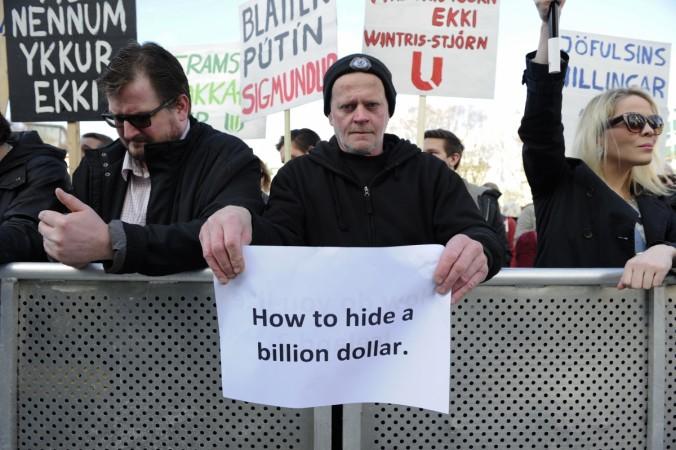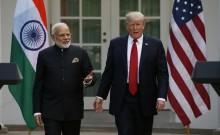
The revelations from the leaked 11.5 million documents of Panama-based law firm Mossack Fonseca have led to governmental probes, even as protests erupted in many parts of the world. Dubbed the "Panama Papers," the scandal exposed names linked to heads of states, including Russian President Vladimir Putin and Chinese President Xi Jinping.
Thousands came out on the streets of Iceland Monday to protest against Prime Minister Sigmundur DavÃð Gunnlaugsson, who wife's name was also revealed in the leak. The protesters demanded the leader's resignation in view of the allegations that he and his wife used a secretive offshore company where they had allegedly stashed millions of dollars, AFP reported.
In India, Prime Minister Narendra Modi called for a probe after 500 Indians' names figured in the Panama Papers, pushing the government to set up a multi-agency investigative team.
"The multi-agency group will comprise various government agencies -the CBDT, FIU (Financial Intelligence Unit), FT&TR (Foreign Tax and Tax Research) and RBI. They will continuously monitor these (accounts) and whichever accounts are found to be unlawful, and strict action as per existing laws will be taken," Indian Finance Minister Arun Jaitley said, according to the Press Trust of India.
Investigations were also launched in Australia, Sweden, Netherlands and Austria, according to Reuters.
The Panama Papers also prompted strong denials and rebuttals.
Mossack Fonseca, which has reportedly helped set up 240,000 offshore companies, itself criticised the investigation by the International Consortium of Investigative Journalists (ICIJ), claiming it "misrepresented the nature of our work" and that the firm carried out "due diligence" of clients.
"Recent media reports have portrayed an inaccurate view of the services that we provide and, despite our efforts to correct the record, misrepresented the nature of our work and its role in global financial markets," the firm said in a statement. "These reports rely on supposition and stereotypes, and play on the public's lack of familiarity with the work of firms like ours. The unfortunate irony is that the materials on which these reports are based actually show the high standards we operate under."
A denial also came from Kremlin, with accusations that the papers were meant to derail the presidential and parliamentary elections in Russia.
"The Kremlin is disappointed by the lack of professionalism in the investigation of alleged corruption among Russian President Vladimir Putin's friends," Presidential Spokesman Dmitry Peskov said, according to TASS.
"Though the investigation mentions other countries and other leaders, it is obvious for us that the main aim of such attacks was and is our president, especially in the context of upcoming parliamentary election and in the context of long-term prospects of presidential election in two years," he said.

















